This website uses cookies, including third party ones, to allow for analysis of how people use our website in order to improve your experience and our services. By continuing to use our website, you agree to the use of such cookies. Click here for more information on our and .
overview
First Nations & The Energy Transition Forum is a key gathering addressing energy security and exploring the role First Nations communities have in Australia’s transition to clean energy. This event brings together industry and community leaders to discuss challenges and opportunities that will drive the path towards net zero while providing a valuable opportunity for attendees to learn about the latest insights and best practices to engage and benefit First Nations communities through partnerships to achieve project success.
Key topics that will be covered include:
- Government role and initiatives
- Economic return, investments, incentives and opportunities
- Best practices for effective collaboration, including building trust, transparency, and communication
- International and national case studies of successful partnership initiatives for new energy infrastructure projects, highlighting the challenges and opportunities involved
- Community-led renewable energy projects in First Nations communities
- Partnerships between First Nations communities and clean energy organisations
- Sustaining energy security and addressing challenges faced by First Nations communities
- Mitigating impacts on culturally significant areas and ensuring Traditional Owners’ engagement in energy projects
- Transitioning from diesel reliance to solar panels and microgrids in remote First Nations communities
- Exploring benefit-sharing opportunities such as job creation and project equity
Speakers

Dominic Da Cruz
Executive ESG & Stakeholder Relations, Zenith Energy

Courtney Parker
Senior Category & Contracts Specialist, Western Power

Tommy Hicks
Head of Culture and Community, Indigenous Energy Australia

Tim Bray
Deputy Director General, PoweringWA, Department of Energy and Economic Diversification

Cat Holland
Senior Consultant, Indigenous Energy Australia
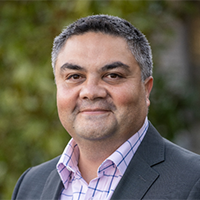
Gavin Brown
CEO, Yamagigu Consulting

Erica Lampropoulos
Executive Director, Pollination Group
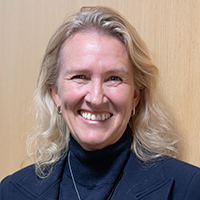
Tamara Brooker
GM Project Development, Yindjibarndi Energy Corporation

Sophie Cunneen
Executive Director, Green Energy, Infrastructure WA
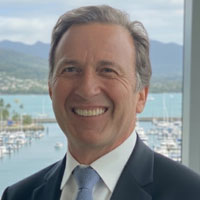
Garry Mueller
Investment Director, Northern Australia Infrastructure Facility (NAIF)

Jonathan Peris
Head of Aboriginal Affairs, SunCable

Nikkita Lee
Project Officer, Pollination Group
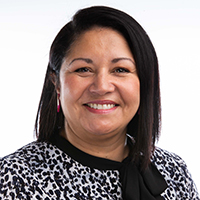
Topaz McAuliffe
Founder and CEO, 15 Times Better
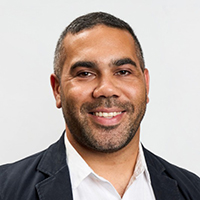
Sam Kirby
First Nations Node Leader, Powering Australia

Will Davis
Managing Director, Pilbara Solar

Bushra Ahmed
Financial Analyst, SP Energy

Chanell Moollan
Senior Stakeholder Engagement Consultant, GHD

Will Story
Commercial Director, AMPYR

Masoud Abshar
Managing Director, Magellan Power

Mr. Steve Nethery
CEO, SP Energy

Charley McDonald
Yindjibarndi Lead Ranger, Yindjibarndi Nation

Raquel Tardin-Coelho
Associate Professor, Curtin Institute for Energy Transition – CIET, Faculty of Science and Engineering, Curtin University

Racquel Kerr
Aboriginal Engagement & Procurement Specialist - WA, GHD

Gohar Rind
Founder & Managing Director, Intaris
Sponsorship & Exhibition Opportunities
Reconnect and re-engage with your industry peers at the First Nations & The Energy Transition Forum.
There are many opportunities for networking including social events such as networking drinks, refreshment breaks and lunches, making this not just a conference… but an all encompassing industry “experience”.
Event sponsorship or exhibiting will allow your organisation to:
- Build relationships with potential and existing clients
- Generate leads from a high-level, targeted audience
- Close sales in a more personal manner than via phone
- Demonstrate your product in person
- Network with the industry
- Build brand awareness
To see what is on offer please contact:
Valerie Pogrebizhsky
Sponsorship Manager | Informa Australia
Direct: +61 (0)2 9080 4362
[email protected]
Insights
 Why being curious is the best way to engage communities
Why being curious is the best way to engage communities
Between 2019-2023, it is estimated that 23 percent of project failures were the product of poor stakeholder management; and, for projects that survive community pushback, there can be hiccups, delays and challenges down the track when seeking further approvals. Read more >>
Event Code Of Conduct
We want everyone who comes to our events to have a great experience. This code explains our expectations and rules, which includes general good practice behaviour, and how to report anything witnessed or experienced that goes against them. Read our Event Code of Conduct here.
Sustainability
Our Commitment to Sustainability
In Australia, we are committed to running our events in an environmentally and socially responsible way. Across Informa Connect we are focusing on the short and long-term sustainability impacts we have on customers and colleagues alongside the communities we work in.
We recognise that it’s not just about the way we produce our events and products but recognising that we have a role to play in providing a space to work in partnership together with our markets to inspire the sustainable development of the industries we serve.
To read more on our latest sustainability reports and Faster Forward initiatives – click here.
when & where
04 - 05 Dec 2025
Novotel Perth Langley
221 Adelaide Terrace
Perth WA 6000
+61 (08) 9221 1200
contact
Still have a question?
General Information & Registration
Customer Service
+61 (0) 2 9080 4307
[email protected]
Sponsorship & Exhibition Opportunities
Valerie Pogrebizhsky
+61 (2) 9080 4362
[email protected]
Speaking Enquiries
Aya Mersal
+61 (2) 9080 4338
[email protected]
Marketing & Media Enquiries
Alys Pryde
[email protected]



